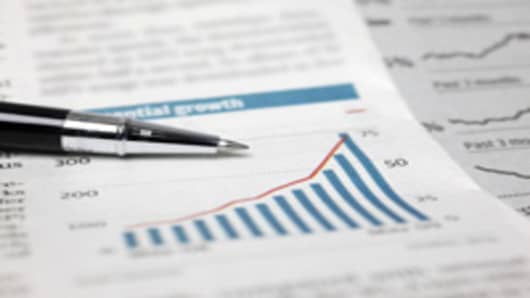The earnings season finishing, the imminent end of quantitative easing by the Federal Reserve as well as news over the weekend that Standard & Poor’s had downgraded the outlook for Italy's ratings to negative from stable were behind the stock selloff in Europe in morning trade, analysts told CNBC.com Monday.
Italy's downgrade from S&P followed Friday’s downgrade by Fitch Ratings of Greece's credit rating to B-plus. Fitch also put the country on a negative rating watch.
Meanwhile, news of a new volcanic eruption in Iceland which forced the closure of the country’s airspace on Sunday also led to concerns that Europe could be hit by another wave of disruption similar to last April's travel chaos.
Shares fell by 1.5 percent across the board on the FTSE, the CAC 40 and the DAX as the trading day began in Europe with Manoj ladwa, a senior trader at ETX Capital telling CNBC.com Monday was going to be a “grim day”.
“The main focus weighing on the markets is, what are we going to get from the euro zone next? Italy was not on the radar,” he said.
Ladwa said the downgrade for the outlook of the Italian economy, while “not terrible” had caught most traders by surprise, leading to the negative sentiment on Monday morning.
“It was one of the countries that no one was really keeping an eye on. It’s not the end of the world. The rating agency has only reduced its outlook from stable to negative. But if the other ratings agencies come out with the same it’s only a matter of time before the rating itself comes under pressure,” Ladwa said.
The effect of the downgrade has also had an impact on credit default swaps, with Spain seeing an increase of 7 percent by 08:30am London time, Belgium up 6.5 percent and Greece up 4 percent. Surprisingly, Italian CDS were only up by just over 2.5 percent.
More Volatility Ahead
Ladwa added that it was “not always the case that they [the ratings agencies] move in the same direction” but traders would be watching and waiting to see whether the other agencies responded.
He also suggested more volatility in the markets over the coming months should be expected as quantitative easing in the US – by which the Fed buys assets in the markets to keep interest rates low - comes to an end.
Volatility was already very much a fact of life in the markets Chris Tinker, founder of Libra Investment Services, told CNBC.com. But he also warned that this was both to be expected and that the news about Italy was not necessarily a surprise nor would it be the main drag on equity prices.
“I think we have to recognize volatility on the markets on a daily basis has been increasing for the last three to four months really in terms of response to perceived larger market risk," he said. "We start to see the markets opening significantly lower and we trade back through the day. That’s a fairly typical day that we are seeing,” he said,
Tinker added that some some areas of the market were, with the earnings season largely over, looking "a little bit expensive" and that a number of the corrections being seen in stocks this morning were part of those corrections.
“If you look at Ryanair, that’s an example of a stock that disappointed in terms of the content and we’ve seen the stock trade significantly lower. What that indicates is that its tolerance for short falls on expectation is still very much weighted to the negative side rather than the positive side," he said.
“I think this market will stabilize in the next 24 hours," Tinker added.
"We haven’t really seen any macro economic events that cause us to really worry. We’re coming to the end of the trading month and, as a consequence the market is looking at having taken the options expiry from the US last week indicating a little bit of negative sentiment, we’re staring the week with a little bit more caution and obviously headlines about volcanic ash and Greece give you a reason to be on the negative side of the trade,” he explained.


